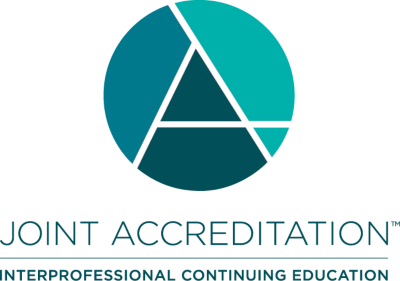Innovating Interprofessional Collaboration in a Primary Care Setting
Monday, August 19, 2019, 3:30 pm - 4:30 pm
Greenway B Room
Theme: Optimizing the Interprofessional Clinical Learning Environment
Workshop Description:
Interprofessional team development requires time and commitment at many levels. In 2015, the IOM introduced the Interprofessional Learning Continuum (IPLC) for designing and implementing interprofessional education and practice. The IPLC model describes the education-to-practice continuum that is essential for movement of interprofessionalism into health care. In 2019, the National Collaborative for Improving the Clinical Learning Environment published a report, Achieving the Optimal Interprofessional Clinical Learning Environment, challenging health care organizations on how to successfully implement an IPCLE. Health care leaders are asked to take a close look at the settings in which clinicians are learning in the context of delivering patient care and to consider how existing cultures, structures, and processes can support or hinder interprofessional learning and collaborative practice. Our team continues to work towards the two themes of Optimizing the Interprofessional Clinical Learning Environment and Aligning Education and Practice for Workforce Transformation and Health System Change as major goals for our endeavors. This workshop will share the experience of a team from multiple levels of an academic/clinical partnership who designed and are implementing an interprofessional clinical learning environment (IPCLE) and engage participants in how the Quadruple Aim. The IPLC model and NCICLE framework can be used as the basis for the design interprofessional education and collaborative practice (IPECP). Selected examples from the micro-meso-macro levels identified in both the IOM and NCICLE documents will be provided that describe our experience creating the new facility and interprofessional collaborative care team and guide participant activities.
The presenters will focus on 3 critical elements:
1) Facility design and team culture;
2) Patient-centered team-based collaboration and care; and
3) Patient, program, and cost.
Learner Outcomes:
By the end of this presentation, participants will be able to:
1) Describe an exemplar of an IPCLE in primary care.
2) Develop an understanding of the importance of culture, patient-centered collaborative care, and outcomes.
3) Analyze one’s own interprofessionalism within the context of recent advancements in the IPCLE
Funding Attribution: Partially funded by Accelerating Interprofessional Community-Based Education and Practice Cultivating Collaboration: Building a Successful Collaborative Care Model in an Academic Health Partnership.
References:
1. Lamb, B., & Clutton, N. (2014). Leadership Development for Interprofessional Teams to Drive Improvement and Patient Safety. In: D. Forman & J. Thistlewaite (Eds.). Leadership Development for Interprofessional Education and Collaborative Practice (pp. 47-68). Palgrave Macmillan, London.
2. Institute of Medicine (IOM). (2015). Measuring the Impact of Interprofessional Education on Collaborative Practice and Patient Outcomes. Washington, DC: The National Academies Press.
3. Weiss KB, Passiment M, Riordan L, Wagner R for the National Collaborative for Improving the Clinical Learning Environment IP-CLE Report Work Group. Achieving the Optimal Interprofessional Clinical Learning Environment: Proceedings From NCICLE Symposium. http://ncicle.org. Published January 18, 2019. doi:10.33385/NCICLE.0002
4. Bodenheimer, T., & Sinsky, C. (2014). From triple to quadruple aim: Care of the patient requires care of the provider. The Annals of Family Medicine, 12(6), 573-576.
Interprofessional Continuing Education
This activity has been planned and implemented by the National Center for Interprofessional Practice and Education. In support of improving patient care, The National Center for Interprofessional Practice and Education is jointly accredited by the Accreditation Council for Continuing Medical Education (ACCME), the Accreditation Council for Pharmacy Education (ACPE), the American Nurses Credentialing Center (ANCC) and the Association of Social Work Boards (ASWB) to provide continuing education for the healthcare team. The intent is to provide accreditation and continuing education credit for this workshop. For questions regarding continuing education, please email ipceapps@umn.edu.



